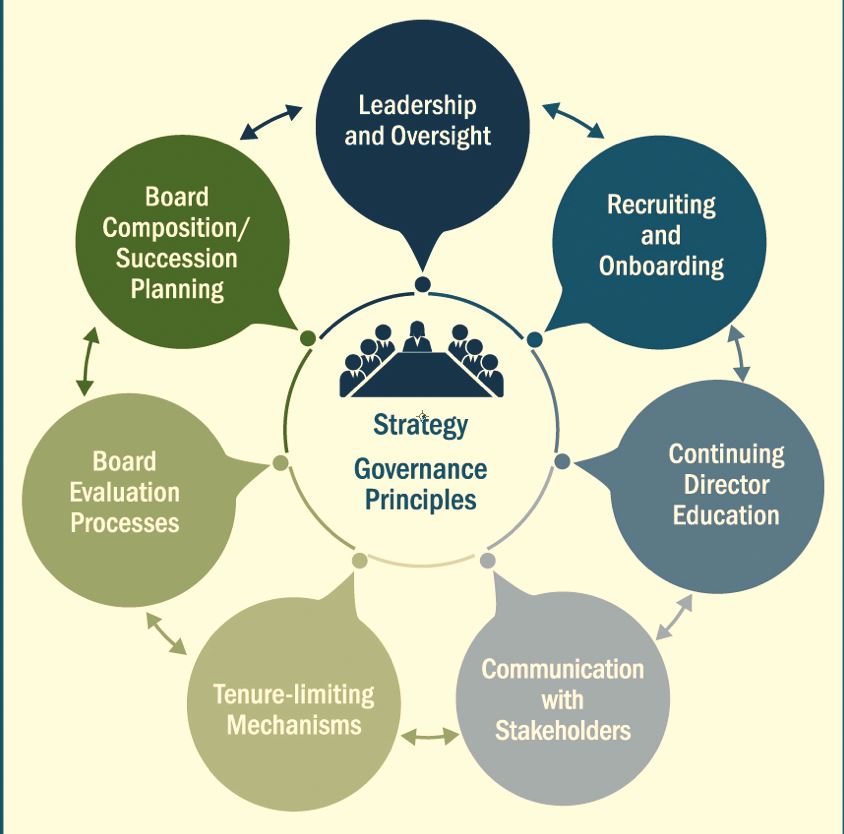
Corporate governance plays a pivotal role in shaping the direction and success of companies worldwide
It encompasses the structures, processes, and relationships through which organizations are directed and controlled. At the heart of corporate governance lies the board of directors, whose oversight and guidance are essential for sustainable growth and stakeholder confidence. This article explores the principles and best practices that underpin effective board oversight in corporate governance
1. Clear Roles and Responsibilities:
One of the fundamental principles of effective board oversight is the establishment of clear roles and responsibilities for board members. This includes defining the board’s strategic role in setting the company’s direction, monitoring performance, and ensuring compliance with legal and ethical standards. Clear delineation of responsibilities between the board, management, and various board committees fosters accountability and transparency.
2. Composition and Independence:
The composition of the board is a crucial aspect of effective governance. A well-structured board should include a diverse group of directors with relevant expertise, industry knowledge, and independence. Independence ensures that board members can make impartial decisions in the best interest of the company and its stakeholders. Independence can be enhanced through the inclusion of independent directors who are free from any conflicts of interest.
3. Effective Board Processes:
To facilitate effective board oversight, certain processes need to be in place. Regular board meetings with well-prepared agendas and comprehensive information packs enable informed decision-making. Committees such as audit, compensation, and nominating/governance committees contribute to specialized oversight in critical areas. The use of technology tools for board communication and document sharing streamlines board processes and ensures efficient information flow.
4. Risk Management and Internal Controls:
An essential aspect of board oversight is the establishment of robust risk management practices and internal controls. The board should actively engage in risk identification, assessment, and mitigation strategies to safeguard the organization’s interests. A comprehensive understanding of the company’s risk profile enables the board to provide effective oversight, anticipate challenges, and adapt the governance framework accordingly.
5. Ethical Standards and Corporate Social Responsibility:
Corporate governance must promote ethical conduct and responsible business practices. The board should foster a culture of integrity and set a tone from the top. It should establish a code of ethics and encourage transparency, accountability, and compliance with applicable laws and regulations. Moreover, embracing corporate social responsibility initiatives strengthens the organization’s reputation and enhances stakeholder trust.
Conclusion:
Effective board oversight is a critical component of corporate governance, ensuring that organizations are managed in a responsible, ethical, and sustainable manner. By adhering to principles such as clear roles and responsibilities, independent board composition, efficient board processes, risk management, and ethical standards, companies can enhance their governance practices. This, in turn, contributes to the long-term success, stakeholder confidence, and overall resilience of the organization.

